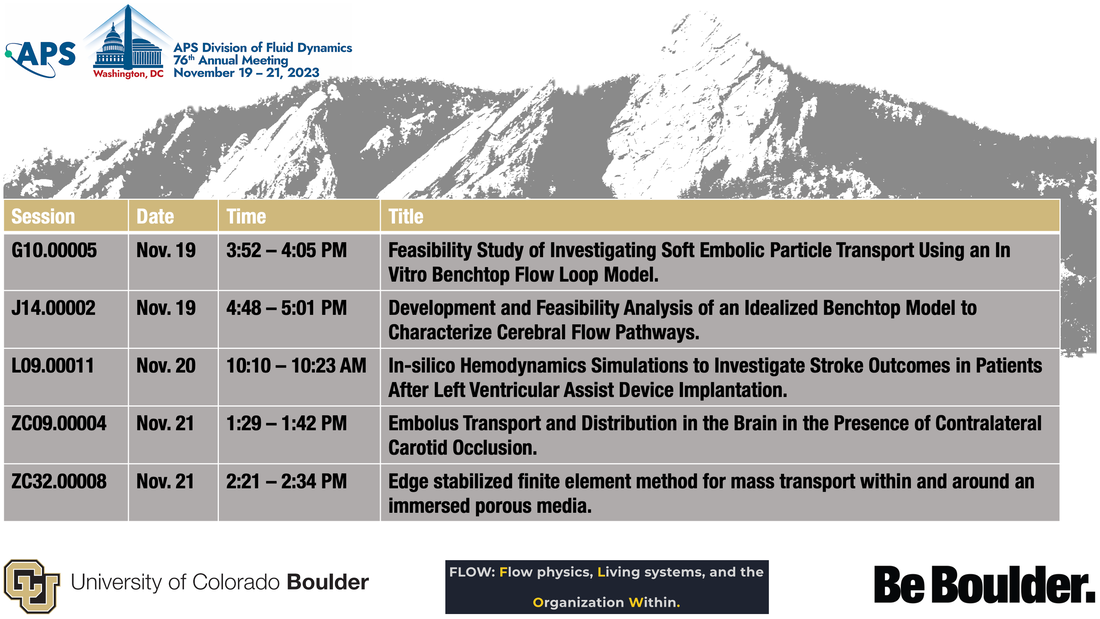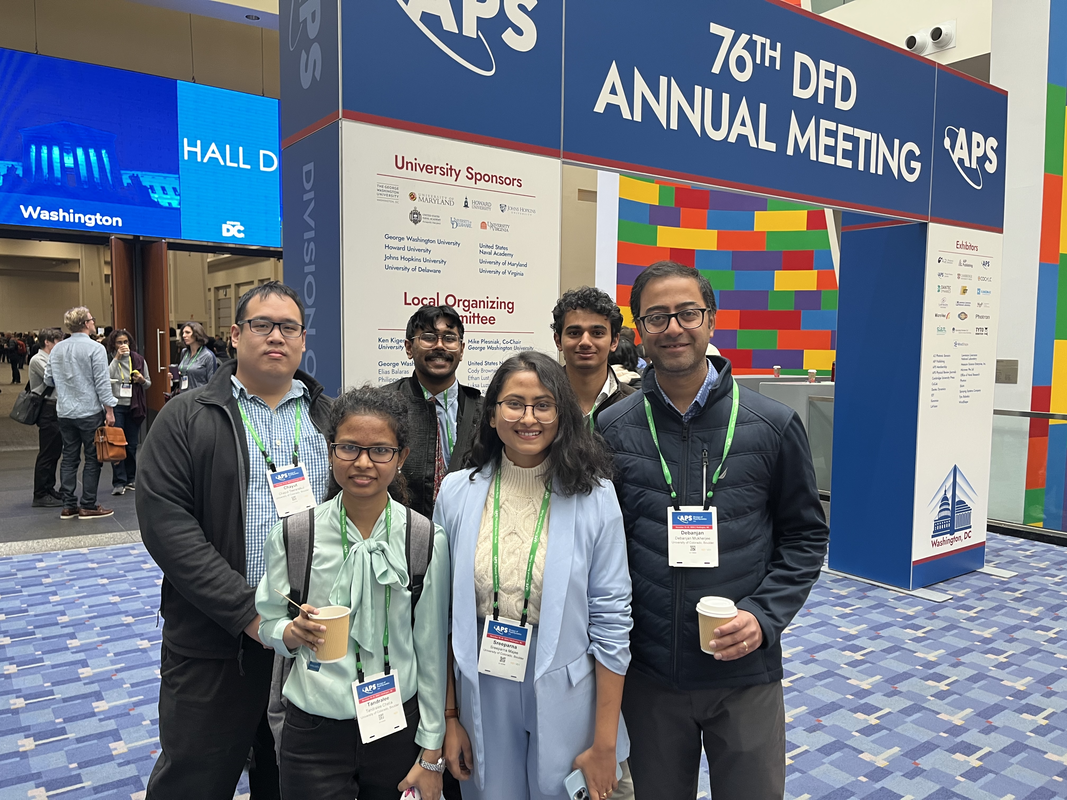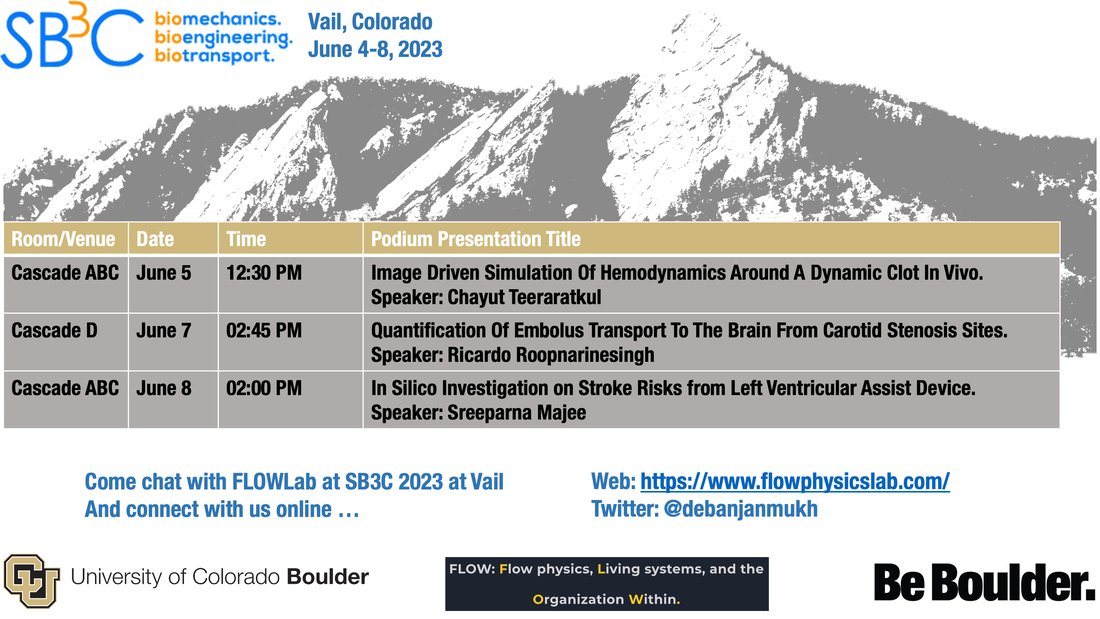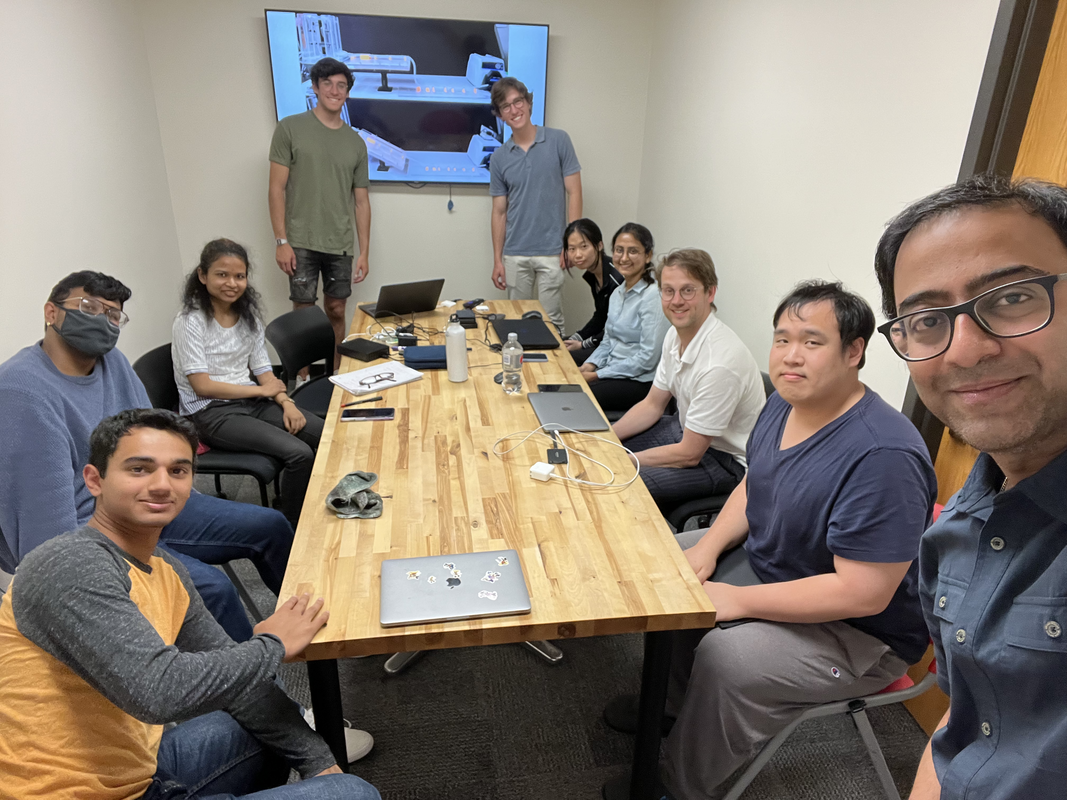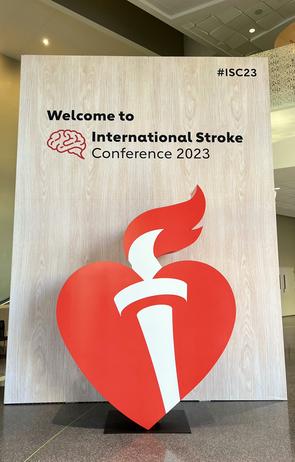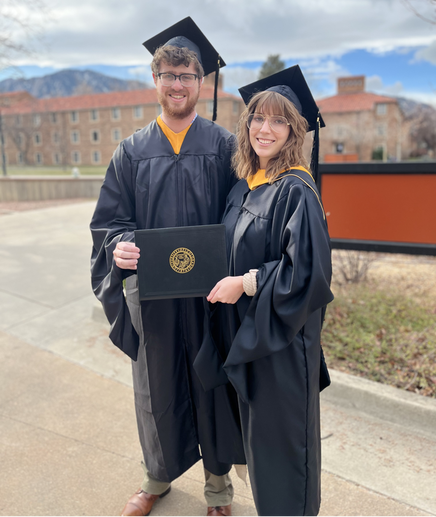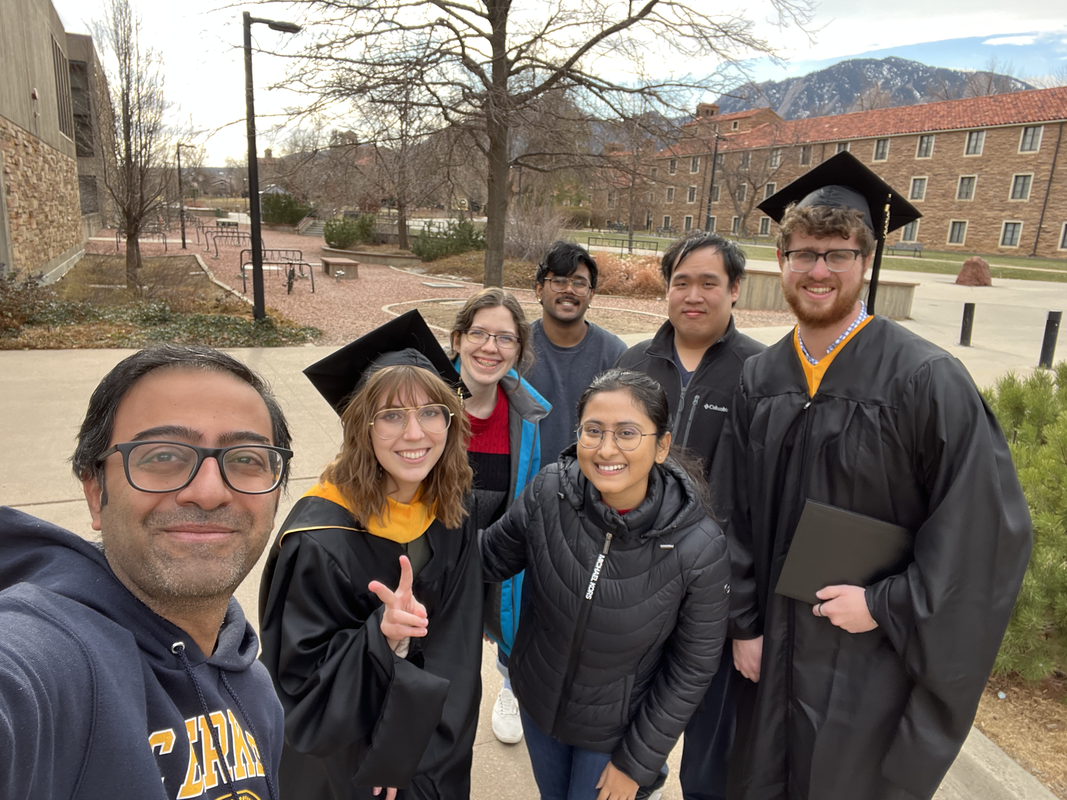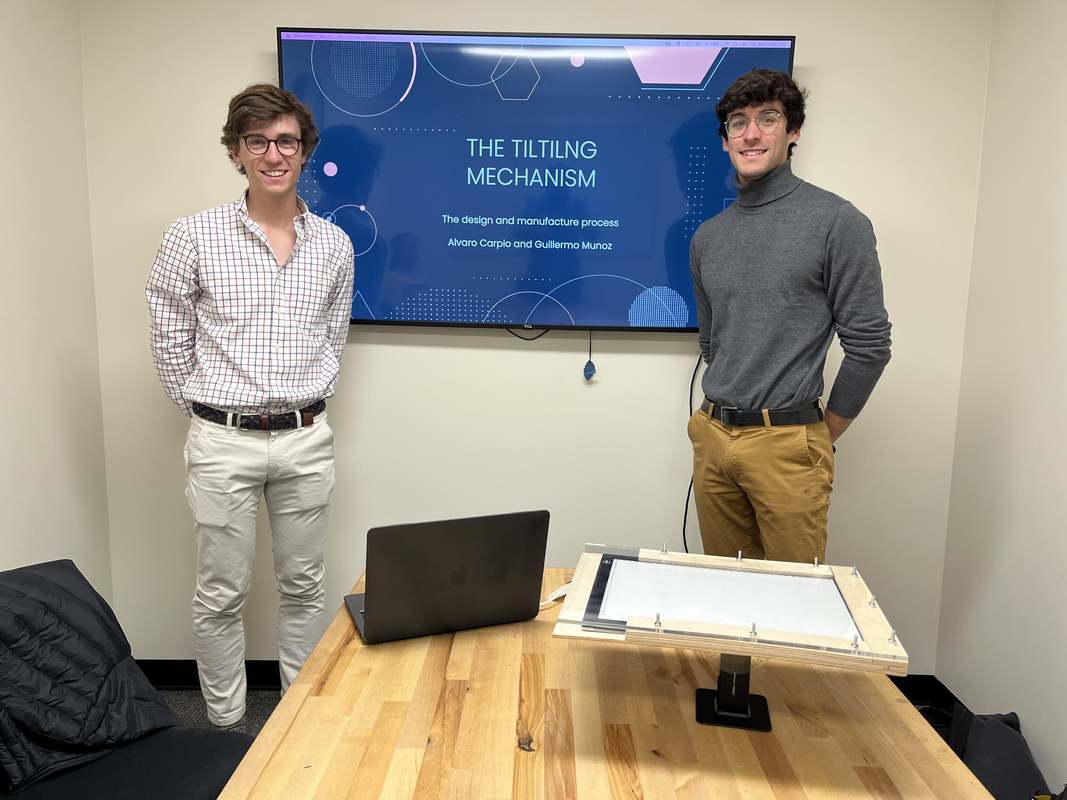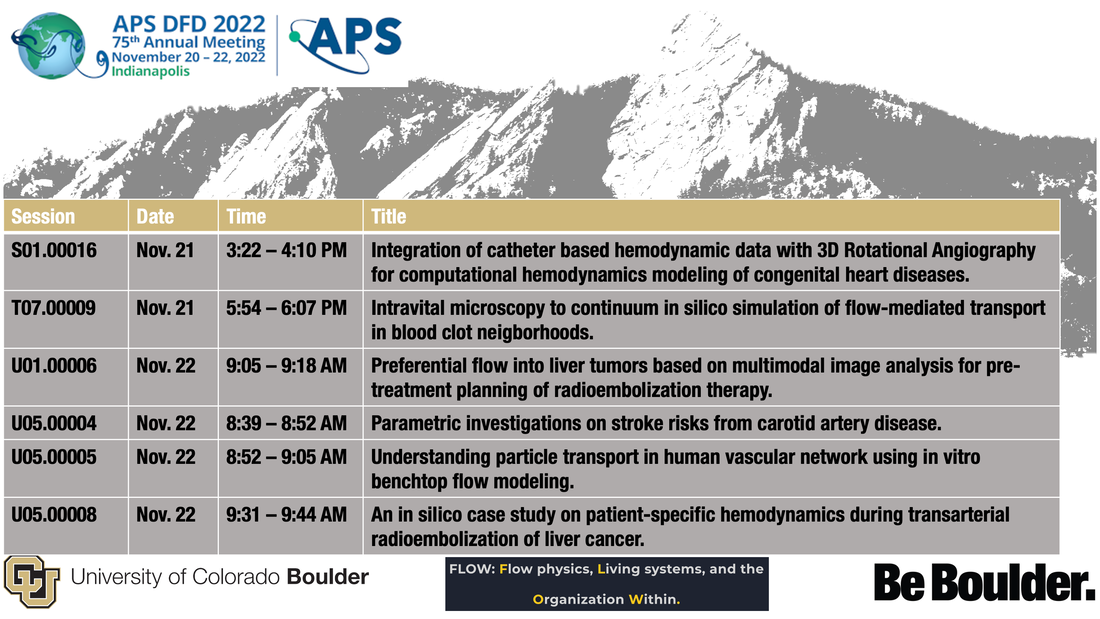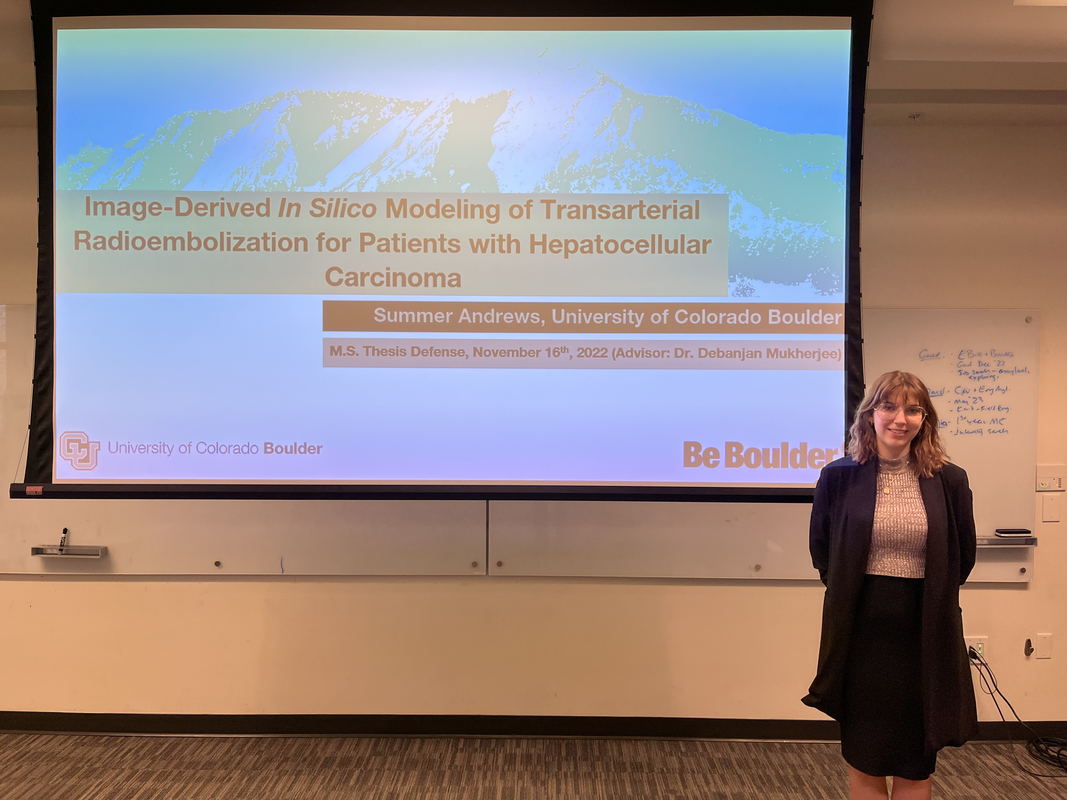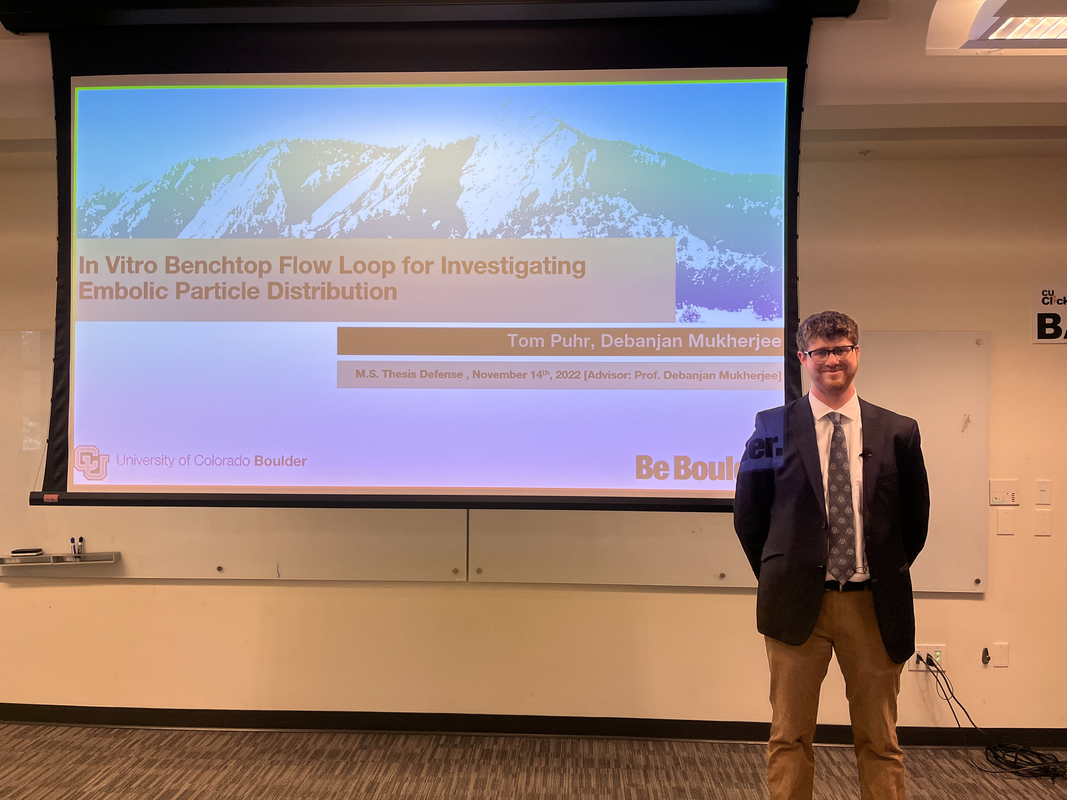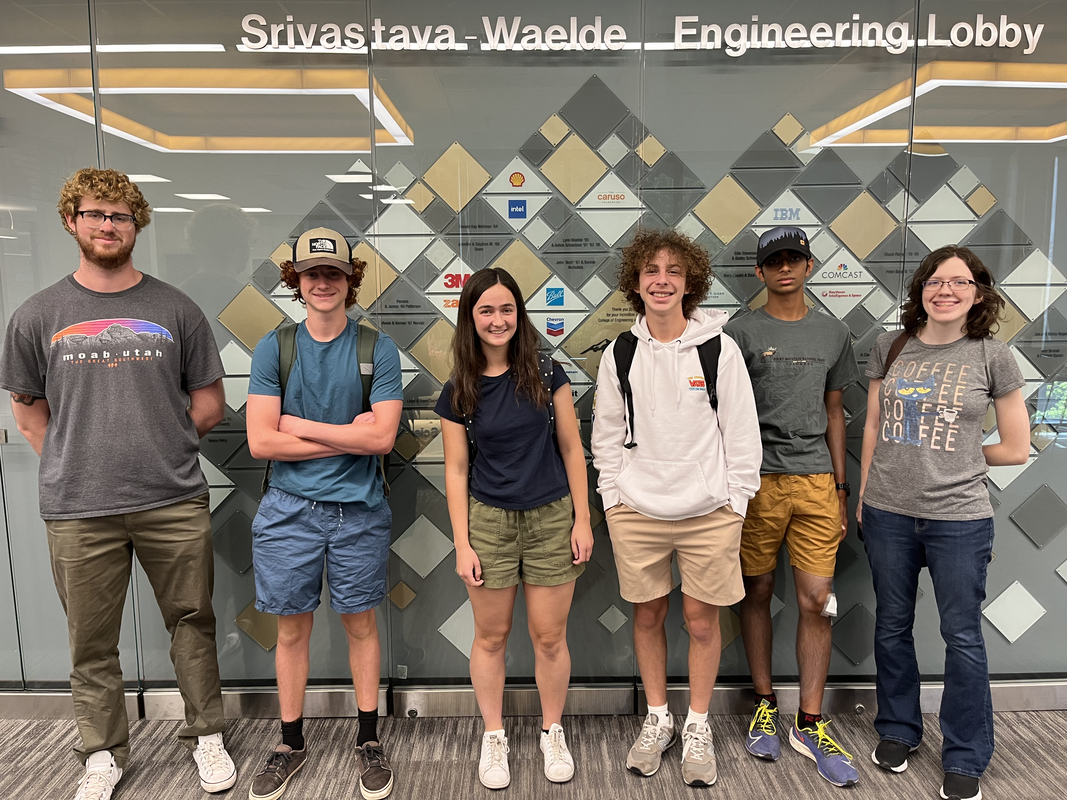0 Comments
FLOWLab is proud to announce the publication or our latest article titled "Computational Fluid Dynamic Assessment of Patients with Congenital Heart Disease from 3D Rotational Angiography" along with collaborators Jenny Zablah and Michael Shorofsky from Children's Colorado. The research presented in this article was spearheaded by talented FLOWLab undergraduate researcher Kelly Cao. We demonstrate the feasibility of utilizing a protocol that combines multi-planar reconstructed 3D rotational angiography imaging with cardiac catheterization lab hemodynamic data; to fully characterize the flow patterns in a reconstructive surgical anastomosis via CFD. You can find the article linked HERE.
Please feel free to review our article, and reach out to us with any questions or comments! And congratulations to Kelly and our collaborators! FLOWLab team had an active and successful presence at the recently concluded 76th Annual Meeting of the American Physical Society Division of Fluid Dynamics meeting held at Washington DC. Our team presented a series of 5 technical talks, spanning various projects across the research program within the lab. The talks also featured our complete spectrum of trainees: undergraduate, MS, PhD, and post-doctoral. Congratulations to team FLOWLab on yet another successful APS DFD meeting!
We at FLOWLab are super excited to share the publication of our latest manuscript titled "The relation between viscous energy dissipation and pulsation for aortic hemodynamics driven by a left ventricular assist device" is now published and available at the BMES journal Cardiovascular Engineering and Technology at the following link: https://link.springer.com/article/10.1007/s13239-023-00670-6.
This work involved contribution from FLOWLab members Akshita Sahni and Kelly Cao and collaborator Jay D. Pal from University of Washington, Seattle. We discuss the specific aspects of viscous energy transport and dissipation due to the altered state of hemodynamics driven by LVAD outflow jet impingement on the aorta wall. This work was funded by the University of Colorado Anschutz Boulder (AB) Nexus research collaboration grant. Check out our paper (you can download an accessible author pre-print from our Publications page). Congratulations Team! We are excited to announce FLOWLab's latest preprint available on bioRxiv (link here) on studying clot flow interactions in vivo by integrating intravital imaging with in silico modeling. This work is led by FLOWLab PhD student Chayu Teeraratkul in collaboration with Maurizio Tomaiuolo and Timothy Stalker.
Intravital imaging of mouse laser injury model can provide high resolution information on hemostatic processes in vivo. However, quantifying the local flow environment and flow-clot interactions require additional work. Here, we use custom numerical methods to fill in hemodynamic and clot-flow interaction information based on experimental data from mouse laser injury models. We can obtain not only the flow patterns, but also flow-induced loading on the clot, and flow-mediated chemical transport in the clot environment, all while accounting for dynamic deformation behavior of the clot itself. The methodology and model predictions are validated against direct experimental observations on caged fluorescent albumin transport dynamics in the mouse injury model. Feel free to check out the preprint, and reach out to us with any questions/comments.
We at FLOWLab are happy to share the latest preprint from our group on MedRxiv on evidence and mechanisms for embolic stroke in contralateral hemispheres from carotid artery disease, available at:
https://www.medrxiv.org/content/10.1101/2023.04.20.23288892v1 This work is authored by FLOWLab member Ricardo Roopnarinesingh and collaborator Michelle Leppert, and is part of our NIH funded study on embolic stroke mechanics. We thank NIH for the funding support, and Dr. Leppert for the wonderful collaboration. Please check out the pre-print, and reach out to us if you have any questions!
Huge congratulations to Tom Puhr and Summer Andrews - FLOWLab's latest MS Thesis graduates!! This winter they got the chance to walk in their regalia in celebration of completing their MS degree. Both Tom and Summer completed amazing thesis research, paving the way for new research directions in the group! FLOWLab is ever so fortunate to have worked with you, will always be proud as well as supportive of all your future accomplishments, and wishes you all the very best of successes and prosperity ahead! Congratulations Tom and Summer!
FLOWLab is pleased to announce the release of a new preprint titled "The Relation Between Viscous Energy Dissipation And Pulsation For Aortic Hemodynamics Driven By A Left Ventricular Assist Device". This is the second manuscript in a series of manuscripts originating from a study on stroke risk assessment in heart failure patients on an LVAD support in collaboration with Dr. Jay Pal from University of Washington Seattle. The research was led by FLOWLab MS student Akshita Sahni, and ably supported by talented undergraduate student Kelly Cao. We are grateful for generous funding from the University of Colorado Anschutz-Boulder Nexus Research Collaboration Grant. The preprint can be accessed on medRxiv at this link. We look forward to comments, questions, and feedback from the broader scientific community.
FLOWLab is excited to announce that we have released a new preprint reporting a quantitative hemodynamic analysis for flow in the aorta of heart failure patients on mechanical circulatory support. This preprint is titled "Quantitative Assessment of Aortic Hemodynamics for Varying Left Ventricular Assist Device Outflow Graft Angles and Flow Pulsation" and is available on medRxiv at the following link: https://doi.org/10.1101/2022.06.17.22276555. This is the first in a series of forthcoming studies we have recently completed on hemodynamics in patients on LVAD support, and their interrelationship with stroke and cerebrovascular accident risks. The series of studies was led by Akshita Sahni, in collaboration with Dr. Jay D. Pal and Dr. Erin E. McIntyre. The study was supported by a University of Colorado Anschutz-Boulder Nexus Research Collaboration Grant. We look forward to comments, questions, and feedback from the broader scientific community.
We are excited to announce that we have a.new preprint on flow-mediated infection transmission for airborne infections, which combines social interaction dynamics models with fluid mechanics. Titled "A Mesoscale Agent Based Modeling Framework For Flow-mediated Infection Transmission In Indoor Occupied Spaces", this preprint can be accessed on medRxiv at this link. This is particularly exciting for us as this work was driven by our first remote visiting intern Gauri Wadhwa from Indian Institute of Technology Kharagpur; and the work unfolded entirely during the Covid-19 pandemic. We look forward to comments, questions, and feedback on the work from the broader scientific community.
FLOWLab is honored to have been selected as one of the recipients of the Translational Methods Pilot Grant (TM-PILOT) award mechanism for a collaborative research effort on developing in silico patient specific models for congenital heart disease patients using standard-of-care 3D rotational angiography imaging. This is in collaboration with wonderful colleagues led by Dr. Jenny Zablah at the Children's Hospital of Colorado and the University of Colorado Anschutz Medical Campus. Here is the University of Colorado Boulder Paul M Rady Mechanical Engineering Department feature on our new project: https://www.colorado.edu/bme/2022/03/09/computer-simulated-heart-flow-model-could-help-treat-pediatric-heart-disease-patients. We thank the Colorado Clinical and Translational Sciences Institute (CCTSI) for this generous funding support!
|




